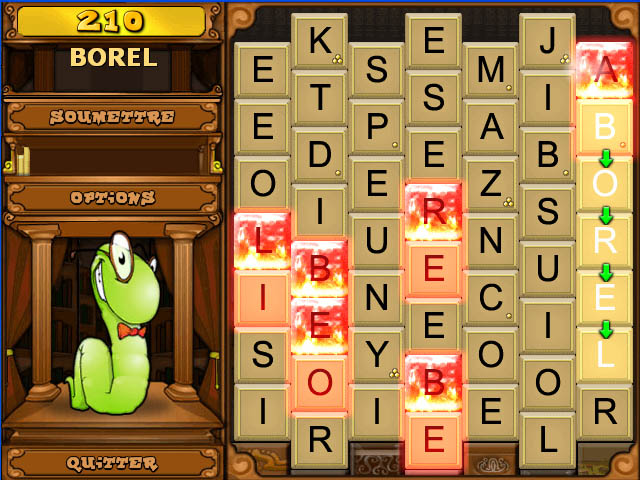Your cheeks are the sides of your face below your eyes.
in the same way What is the plural of AVEC? avec
| Possessive forms of avec (type risti) | ||
|---|---|---|
| possessor | singular | plural |
| 1st person | avecini | avecimme |
| 2nd person | avecisi | avecinne |
| 3rd person | avecinsa |
What is jouer in present tense? Jouer is a French regular er verb meaning to play. Jouer appears on the 100 Most Used French Verbs Poster as the 16th most used regular er verb.
…
Jouer Conjugation: Present Tense.
| je | joue |
|---|---|
| tu | joues |
| il/elle | joue |
| nous | jouons |
| vous | jouez |
Is Les masculine or feminine? Le/la/l’ or les – more examples
| Plural masculine | Plural feminine |
|---|---|
| les fromages – the cheeses | les villes – the towns |
Is Les plural in French?
les is used in front of plural nouns , whether they are masculine or feminine and whatever letter they start with.
…
1 The basic rules.
| with masculine noun | with feminine noun | |
|---|---|---|
| Singular | le (l’) | la (l’) |
| Plural | les | les |
Beside this What is a feminine in French?
Every noun in French has a gender. A noun is either masculine or feminine. As you might have guessed, the word for ‘woman,’ femme, is feminine. To say ‘a woman’ we say une femme.
What tense is je Jouerais? The 6 Simple Tenses of the conjugated verb jouer – French for play
| VERB CONJUGATION TABLE jouer | ||
|---|---|---|
| Simple Tenses jouer | ||
| TENSE | je/j’ | tu |
| Present Présent play | joue | joues |
| Past Imperfect Imparfait played | jouais | jouais |
What is verb aller? Aller means ‘to go.’ Not only is it one of the most common verbs in the French language, but it is also useful to form one of the future tenses within French. It’s also an irregular -er verb, so make sure to pay attention to the special conjugation!
What are ER verbs in French?
Most Common -er Verbs
| French | English |
|---|---|
| rester | to stay, to remain |
| porter | to carry, to wear |
| parler | to speak, to talk |
| montrer | to show, to display |
How do you pronounce les in French?
What is the difference between LES and DES?
Grammar jargon: Les is the plural definite article; Des is the plural indefinite article. These articles are used with countable nouns (things you can count, like dogs, as opposed to mass nouns for things like milk which use partitive articles instead.)
How do you pronounce le la les in French?
Should I use Les or Des?
Grammar jargon: Les is the plural definite article; Des is the plural indefinite article. These articles are used with countable nouns (things you can count, like dogs, as opposed to mass nouns for things like milk which use partitive articles instead.)
How do you use Les in French?
As French makes a distinction between “masculine and feminine objects”, people use le for masculine things/persons and la for feminine things/persons. However, in the plural, only les is used whatever the gender is .
…
le, la, les (articles définis)
| Anglais | Français |
|---|---|
| the | le (m) |
| la (f) | |
| les (pl) |
How do you use le les in French? As French makes a distinction between “masculine and feminine objects”, people use le for masculine things/persons and la for feminine things/persons. However, in the plural, only les is used whatever the gender is. When the following noun begins with a vowel, le or la becomes l’.
Is Francais masculine or feminine? The name of the language is LE françAIS – masculine, S silent, lower case F.
Is Stylo masculine or feminine?
The word for pen in French is stylo. Stylo is a masculine noun, so if you wanted to say ‘the pen,’ for example, you would use the masculine definite…
How do you conjugate Rester? Conjugate the verb rester:
- je reste. tu restes.
- il restait. nous sommes restés.
- vous resterez.
- ils resteraient.
How do you conjugate Pratiquer?
Conjugate the verb pratiquer:
- je pratique. tu pratiques.
- il pratiquait. nous avons pratiqué
- vous pratiquerez.
- ils pratiqueraient.
What is French for to study? The French verb ‘etudier‘ means ‘to study’ in English.
What are the six forms of Aller?
Aller in the present tense
- Je vais – I go, I am going.
- Tu vas – You go, you are going (sing. fam.)
- Il va – He/It goes, he/it is going.
- Elle va – She/It goes, she/it is going.
- Nous allons – We go, we are going.
- Vous allez – You go, you are going (pl. pol.)
- Ils vont – They (m.) go, they are going.
- Elles vont – They (f.)
How do you remember Aller?
What is the participe passé of Aller?
For the verb aller, the passé composé is conjugated using the auxiliary verb être instead of avoir. This is followed by the past participle of aller – allé. Unlike the verbs that use avoir, the past participle of aller must match the gender and number of the subject.
Do’t forget to share this post !
